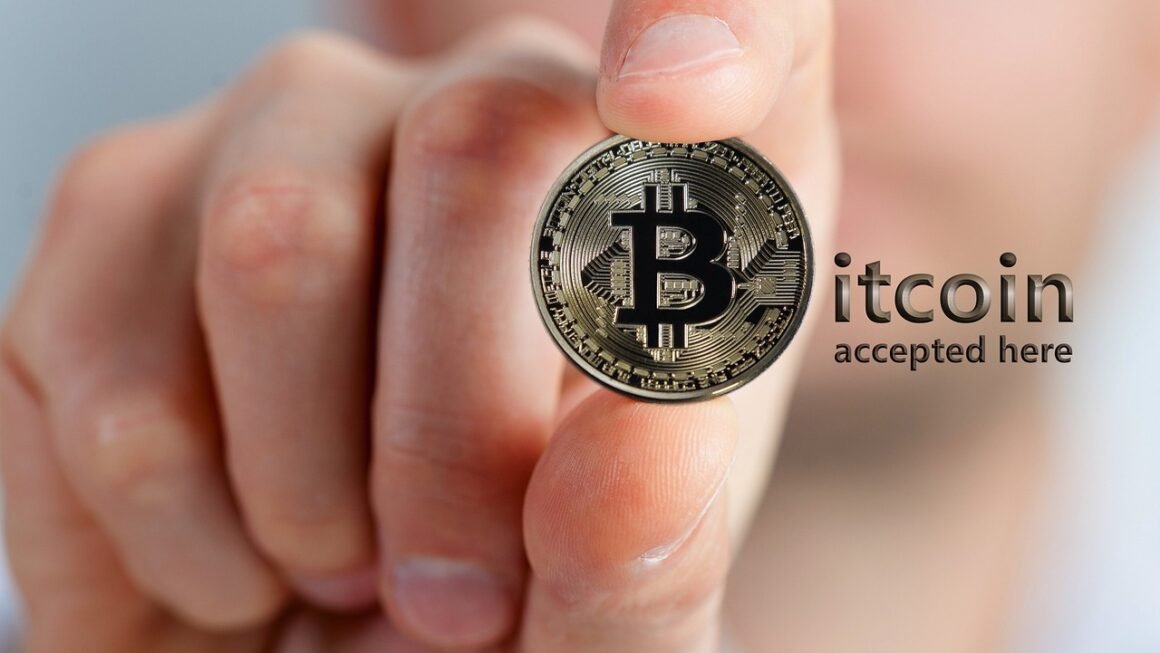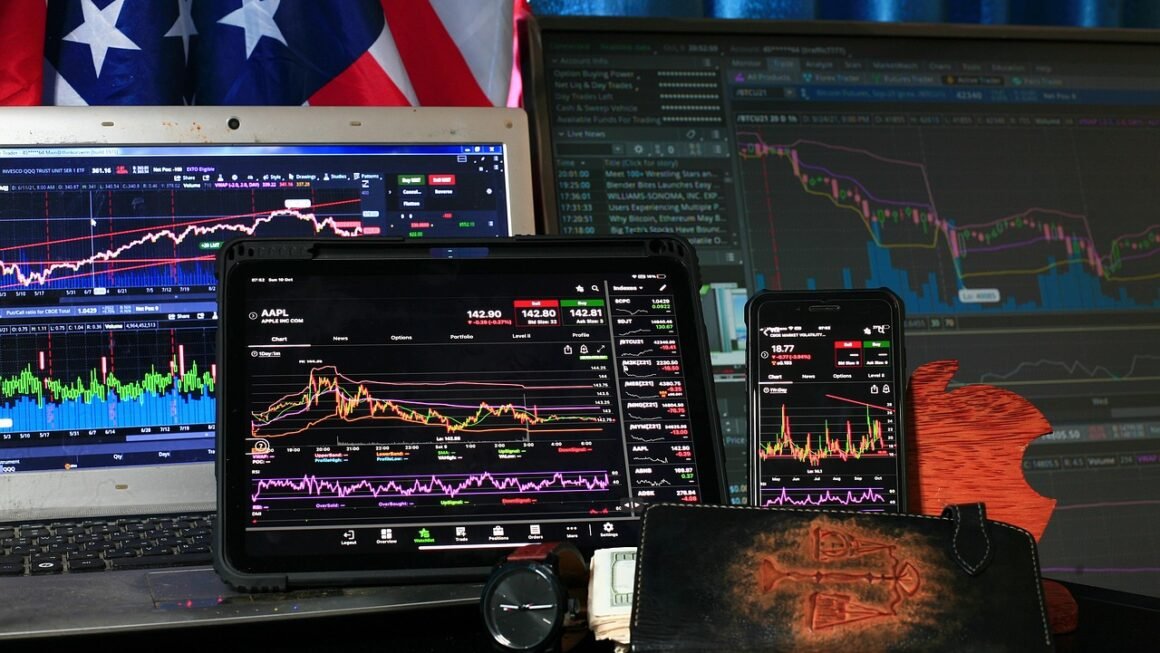Protecting your digital assets in the world of cryptocurrency is paramount. As the adoption of Bitcoin, Ethereum, and other cryptocurrencies continues to surge, so does the sophistication of cyber threats. This blog post will delve into the crucial aspects of crypto security, providing you with the knowledge and practical steps needed to safeguard your investments. We’ll explore common threats, essential security measures, and best practices to ensure your peace of mind in the decentralized world.
Understanding the Crypto Security Landscape
The Importance of Crypto Security
Crypto security is not merely a suggestion; it’s a necessity. Unlike traditional financial systems that offer built-in protections, cryptocurrency relies heavily on individual responsibility. The decentralized nature of blockchain means that once your crypto is stolen, recovering it can be extremely difficult, if not impossible. Losing your private keys is akin to losing the deed to your house – without it, you can’t access your assets.
- The value of the cryptocurrency market is highly volatile, making it an attractive target for hackers.
- Many users are new to the space and unaware of the common scams and vulnerabilities.
- Transactions are irreversible, meaning that a single security breach can have devastating consequences.
Common Crypto Security Threats
Understanding the threats you face is the first step toward securing your crypto. Here are some common attacks:
- Phishing: Deceptive emails, websites, or messages designed to trick you into revealing your private keys or login credentials. For instance, a fake email claiming to be from your exchange asking you to verify your account information.
- Malware: Software designed to steal your private keys, intercept transactions, or control your device. Example: A keylogger that records every keystroke, including your password.
- Exchange Hacks: Attacks targeting cryptocurrency exchanges, potentially leading to the theft of users’ funds. Mt. Gox and Coincheck are notorious examples.
- 51% Attacks: A malicious actor controlling more than 50% of the network’s hashing power, enabling them to reverse transactions and double-spend coins. While rare for major coins, it’s a risk for smaller blockchains.
- SIM Swapping: Criminals porting your phone number to their own SIM card to intercept SMS-based two-factor authentication codes.
- Ransomware: Malicious software that encrypts your files and demands a ransom payment in cryptocurrency for their decryption.
- Social Engineering: Manipulating individuals into divulging confidential information or performing actions that compromise security. Example: Convincing customer support that you’ve lost your account credentials.
Securing Your Wallet
Choosing the Right Wallet
Your crypto wallet is the gateway to your digital assets. Selecting the right wallet type is crucial.
- Hardware Wallets: Physical devices that store your private keys offline, providing the highest level of security. Examples include Ledger and Trezor.
– Benefits: Immune to malware, offline storage, and secure transaction signing.
– Considerations: Initial cost and the need to handle a physical device carefully.
- Software Wallets: Applications installed on your computer or mobile device. Examples include Exodus and Trust Wallet.
– Benefits: Convenient, free (for most), and easy to use.
– Considerations: Vulnerable to malware if your device is compromised.
- Exchange Wallets: Wallets provided by cryptocurrency exchanges.
– Benefits: Easy access for trading.
– Considerations: Highest risk due to the exchange being a central point of failure. It’s generally recommended to avoid storing significant amounts of crypto on exchanges for extended periods.
- Paper Wallets: A printout of your public and private keys.
– Benefits: Very secure if generated and stored properly.
– Considerations: Requires careful handling and is not practical for frequent transactions. Prone to physical damage or loss.
Best Practices for Wallet Security
Regardless of the wallet type you choose, these best practices are essential:
- Keep Your Private Keys Safe: Never share your private keys or seed phrase with anyone. Store them in a secure location, preferably offline and encrypted.
- Enable Two-Factor Authentication (2FA): Add an extra layer of security by requiring a second code from your mobile device in addition to your password. Use an authenticator app like Google Authenticator or Authy instead of SMS-based 2FA, as SMS is vulnerable to SIM swapping.
- Use Strong Passwords: Create strong, unique passwords for all your crypto-related accounts. Use a password manager to generate and store them securely.
- Regularly Update Your Software: Keep your wallet software, operating system, and antivirus software up to date to patch security vulnerabilities.
- Verify Transaction Details: Always double-check the recipient address and amount before confirming a transaction. A single mistake can be irreversible.
- Be Wary of Phishing Attempts: Always verify the legitimacy of emails, websites, and messages before clicking on links or entering your credentials.
- Backup Your Wallet: Regularly back up your wallet and store the backup in a secure location. This will allow you to recover your funds if your device is lost or damaged.
Protecting Your Accounts
Securing Exchange Accounts
Even if you primarily use a hardware wallet, you’ll likely need an exchange account for trading. Here’s how to secure it:
- Strong, Unique Passwords: Use a different, strong password for each exchange account.
- Two-Factor Authentication (2FA): Enable 2FA on all your exchange accounts. As mentioned, use an authenticator app instead of SMS.
- Whitelisting Addresses: Some exchanges allow you to whitelist specific withdrawal addresses. This means you can only withdraw funds to pre-approved addresses, preventing unauthorized withdrawals to unknown accounts.
- Regularly Review Activity: Check your account activity for any suspicious transactions or login attempts.
- Email Security: Use a strong and unique password for the email address associated with your exchange accounts. Enable 2FA for your email as well.
- Avoid Public Wi-Fi: Do not access your exchange accounts on public Wi-Fi networks, as they are often insecure and vulnerable to eavesdropping.
Protecting Against Phishing and Scams
Phishing and scams are rampant in the crypto space. Staying vigilant is crucial.
- Verify Sources: Always verify the legitimacy of emails, websites, and messages before clicking on links or entering your credentials. Check the sender’s email address, website URL, and grammar.
- Be Wary of Giveaways and Airdrops: Be extremely cautious of giveaways or airdrops that promise free crypto in exchange for your private keys or other sensitive information. If it sounds too good to be true, it probably is.
- Never Share Your Private Keys: No legitimate exchange, wallet provider, or project will ever ask for your private keys.
- Research Before Investing: Before investing in any cryptocurrency project, do your research. Understand the project’s goals, team, and technology. Be wary of projects that promise unrealistic returns or lack transparency.
- Report Suspicious Activity: If you encounter a phishing attempt or scam, report it to the relevant exchange or platform.
Advanced Security Measures
Multi-Signature Wallets
Multi-signature (multisig) wallets require multiple private keys to authorize a transaction. This adds an extra layer of security by preventing a single point of failure.
- How They Work: A multisig wallet might require 2 out of 3 keys to authorize a transaction. This means that even if one key is compromised, the funds remain secure.
- Use Cases: Ideal for shared accounts, institutional custody, and high-value transactions.
- Examples: Gnosis Safe and Casa offer multisig wallet solutions.
Cold Storage
Cold storage involves storing your crypto offline, significantly reducing the risk of online attacks.
- Methods: Hardware wallets and paper wallets are common forms of cold storage.
- Benefits: Immune to malware, hacking, and phishing attacks.
- Considerations: Less convenient for frequent transactions.
Security Audits
For cryptocurrency projects and smart contracts, security audits are crucial to identify and address vulnerabilities.
- Purpose: Independent security experts review the codebase to identify potential flaws and security risks.
- Benefits: Enhances the security and reliability of the project.
- Importance: Essential for DeFi projects and other applications built on blockchain. Look for projects that have undergone reputable security audits.
Conclusion
Securing your cryptocurrency requires a multi-faceted approach. By understanding the threats, implementing strong security measures, and staying informed about best practices, you can significantly reduce your risk of becoming a victim of cybercrime. Remember to prioritize the security of your private keys, choose the right wallet, and be vigilant against phishing and scams. The crypto space is constantly evolving, so continuous learning and adaptation are essential for maintaining a robust security posture. Take control of your financial future and protect your digital assets with the knowledge and tools outlined in this guide.



